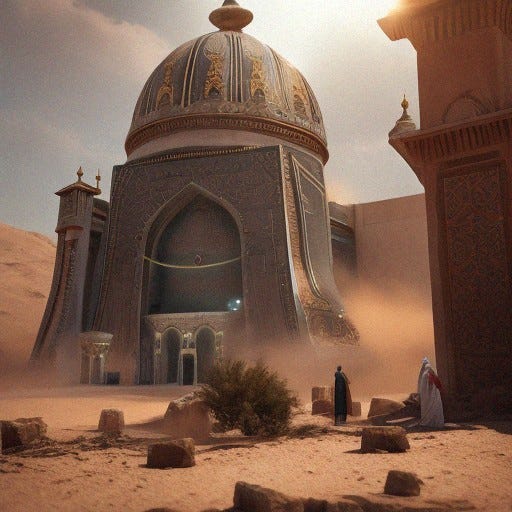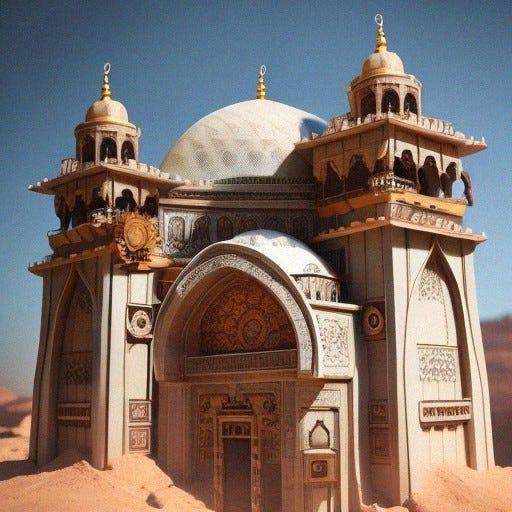European colonialism, in order to justify its own “civilizing mission”, had to project the subjugated populations as somehow being the very antithesis of “civilization”; considering that modernity weaponizes “universal reason” against religion and tradition, one of the best ways to demonstrate that a population wasn’t civilized was to showcase their illiteracy, as in their twisted software a lack of formal (at least primary) education would naturally imply “irrationalism”.
This is what the French did during their colonization of Algeria, a process that began in 1830 and lasted till 1962.
The French argued that they obviously had no ulterior motives but were there to build schools for Algeria’s children (especially girls) to learn elementary mathematics and a few other subjects that were totally worth the militarized liberal colonization.
But were Algerians as ignorants as projected by the French colonial civil servants?
Michel Hubart disagrees.
Himself French, in 1961 he published a book, Histoire d’un parjure, where he demystifies many myths associated with the rationale behind the French occupation of Algeria.
Let’s read what he says about “education” in particular (something that could be applied to the whole pre-modern Ummah), as this book of course has no English translation, on pp. 137-139:
The testimonies are formal. In 1830, all Algerians knew how to read, write, and count, "and most of the victors," adds the 1833 commission, "had less education than the vanquished." The Algerians were much more educated than one might think, Campbell noted in 1835. When we arrived, there were more than one hundred elementary school in Algiers, 86 in Constantine, 50 in Tlemcen. Algiers and Constantine each had six or seven secondary colleges, and Algeria had ten zaouia (universities). Each village or group of inhabitants had its own school. Our occupation dealt them an irreparable blow. At least, did we replace them? Bishop Dupuch answers us, deploring the fact that in 1840 he found only two or three teachers for the whole province of Algiers. In 1880, there were still only thirteen (I say thirteen) Franco-Arab schools for all of Algeria. We have,"says our great orientalist George Marcais, "squandered the Muslim heritage to our heart's content."
Such was the barbarity of these barbarians. Certainly, the sometimes frustrated customs of a people who remained apart, certain oriental traits, the expeditious behavior of their administration, their routines, their indifference to comfort, their superstitions, their fastidious devotion shocked our Western sensibilities. But Algeria had its culture. This heritage deserved to be preserved. "Isn't the characteristic of a civilization to know how to accept another one without destroying it ?" asked Hamdan. In fact, it was a real cultural extermination.
The commission of inquiry puts here the points on the i's: "We brought to these people the benefits of civilization, and from our hands escaped the turpitudes of a worn out social order. We overflowed in barbarism the Barbarians that one came to civilize. Turkish discipline appeared to them under our powers as a nostalgic oasis." Rovigo is also brutal: "Our only superiority over them is our artillery, and they know it. They have more spirit and sense than the Europeans, and one day we will find immense resources among these people, who know what they have been and who believe they are destined to play a role. What is needed," says Tocqueville, "is to give books to this curious and intelligent people. They can all read. And they have that finesse and ability to understand which makes them so superior to our peasants of France."





